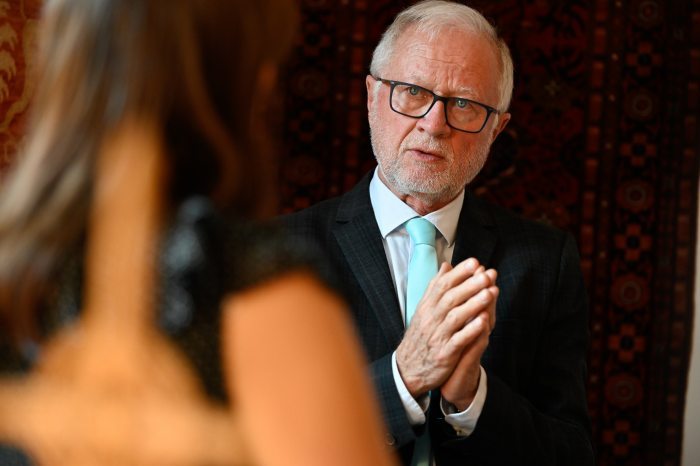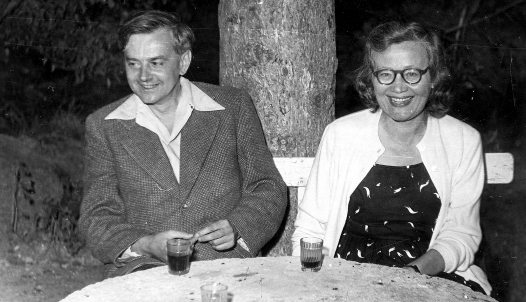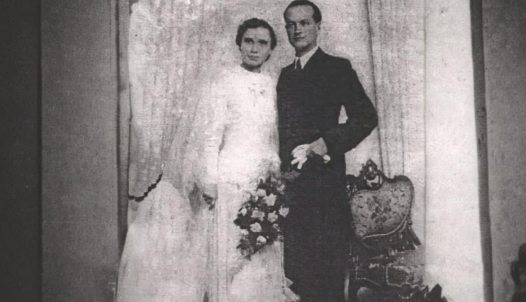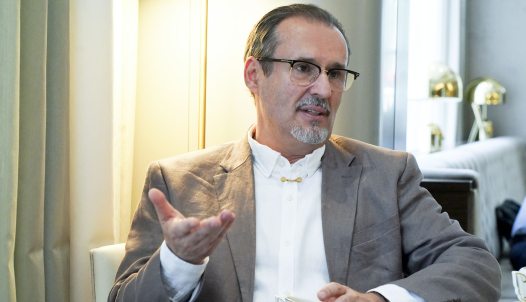The gift boats were punched by the Sri Lankans – Giving help is not the same as giving aid
The Hungarian Interchurch Aid, thirty years old this year, has matured into a cohesive, extended community of people working every day to make the world a more just place. With three decades of social work behind him, the organization's President and CEO believes that it is not enough to give what is needed, the aim is to lend a helping hand to those in need so that they can later stand on their own two feet. We asked László Lehel about the Afghanistan evacuation, farming in Kastélyosdombó, the ‘coins’ system, liberal and conservative approaches, and 30 years of the aid organization.
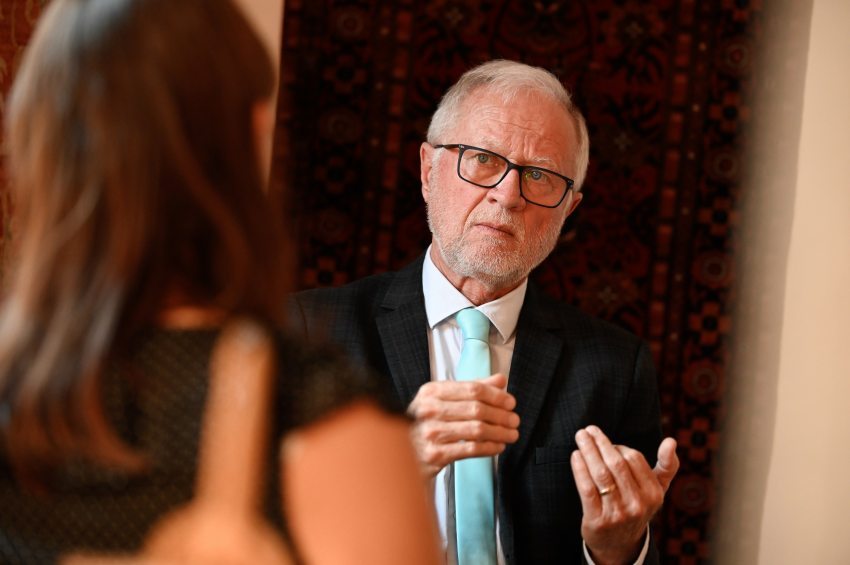
When the Taliban took power in Afghanistan, besides all the Hungarians, the state also rescued Afghans who had helped the Hungarians in some way. The Hungarian Interchurch Aid worked in the Central Asian country for a long time. Did you also come across people who had to be evacuated?
Yes, we also cooperated in the evacuation. We had someone who worked for us as an accountant, another colleague was a doctor, he was in charge of the health programmes when we were helping hospitals, and we also had a project manager who was in charge of going to the site and managing and supervising the work there.
Since 2001, the Aid has been implementing humanitarian and development programmes in the country, which has been ravaged by decades of war. Was it a difficult decision to withdraw?
Wisdom demanded that we suspend our work there. Our colleagues there have also indicated that what is happening in Afghanistan now is desperate.
You have visited the region several times. Were you surprised that the Taliban came to power without encountering major armed resistance?
Not really. When I went there, I found that many of the people there didn't really like the way they lived. This kind of strong foreign presence was for them tantamount to occupation. Whether you like it or not, even though the militaries of different countries were doing humanitarian work, helping with reconstruction, some of the locals didn't see it that way. The consequence of this was that the whole system collapsed in an instant. There are great lessons to be learned from this, but I am not sure that the world will learn from it.
What conclusions should be drawn from the situation there?
That we don't have to reorganize everything, solve everything.
We cannot impose the structure of a country, its political system, from outside.
If we accept that Muslim culture is different and that we don't need to make it Western European, then maybe help can work. They do not want to conform to us, either in their own country or once they come over to Europe. And the Westerners see the solution in the need for even greater tolerance. I see a lot of naivety and a lack of sense of reality in this.
There are also several stories of the infrastructure installed by international organizations being destroyed by locals. What has been your experience - even with the best intentions, aid can get stuck in developing countries?
There is no need to bring infrastructure that they cannot integrate into their lives, into their culture. To give you an example, speedboats were brought to Sri Lanka with the intention to make fishing more efficient with these trendy motorboats. There were a few of these boats out at sea, and then people started fighting because whoever had the better boat caught more fish. In the end, they punched a hole in all of them and went back to their old way of fishing. It was the person who came up with this idea who made a serious mistake in this case! Nor should the infrastructure be built according to European thinking. You have to consult with the locals, get to know them, learn how their society works and what I can do to offer real help. You don't have to take three steps at once, just one at a time. We can usually work effectively where we understand the community. The experience of the last thirty years is that, in a certain sense, the Hungarian mentality is more accepted in Eastern Europe and Central Asia than, say, Western European or American.
What is the reason for this?
We do not want to export ideologies, nor want we change them. Besides, the Hungarian and the Central Asian are both cunning people in terms of acumen, and when we meet, we understand each other's goals better.
For thirty years you have been building society at home and abroad. Are you doing aid work with the same goals and motivations as you did three decades ago?
In our 1991 statutes, we set two objectives. One was to provide non-discriminatory assistance in humanitarian disasters, and the other was to look at the causes that create poverty and try to find solutions. If I look back over the last thirty years, I have to say that basically, nothing has changed, because these objectives are still valid today. We have been there abroad in disasters, we have gained a lot of experience and recognition, and here at home, we have come from spontaneous relief to what for us is conservative thinking in social work.
Is there a conservative or liberal approach to helping?
Of course! The liberal approach is to give aid as a matter of right, not to ask questions, not to request accountability, just to give what is needed.
The conservative view, on the other hand, says that if I give you something, you have to work for it too, not just me.
The assistance should not be one-sided, the other person should also be involved in shaping their own life. This principle of "something for something" is not clear in education either to everyone studying social work.
Why is it not enough to simply give what is needed?
If a person only gets aid, they will stay in poverty, they’ll lose their ambition, their sense of responsibility, and that's how their children will be socialised. This builds a bad future! What we are saying, on the other hand, is that one of the conditions for social aid is, for example, that the child should go to school. We have introduced a coin (‘tallér’) system, which means that if someone takes on extra work, for example, if they give their children extra attention, they receive a coin, the value of which is stated. For example, you can get new clothes, cinema tickets, theatre tickets on these coins. There was a mother in the Family Transition Home who said she wanted to go to the theatre, and it cost her 10-12 coins.
The soul of an aid organisation is its response to human fates. Can you remember the first human story that touched you in your charity work?
At that time we were not even formally an aid organisation, but we were already starting to organise. I spoke to Imre Kozma about it, and he encouraged me and confirmed the need for the organisation. We started to organise meditative music sessions in the Zugligeti church and in Csillebérc. One hundred – one hundred and fifty people came to the tent. One needed medicine, another wanted to call home to her loved ones so that her abuser would not identify her. But I remember many beutiful stories. For example, when the Romanian revolution started and we began to organise the first convoys, there was an international meeting in Beregfürdő, which was attended by aid workers. The trucks arrived in the
You have to feel the moment when you have to act.
It happens sometimes in this field that you feel that you need to act, but you can't. How often does the aid agency experience powerlessness?
Social work is characterized by pitfalls and failures because we try to influence the lives of others according to our own way of thinking, and the two views do not always coincide.
What is the responsibility of the social worker in this?
A social worker can make two types of mistakes. One is to be very permissive, the other is to start the job with a preconception and try to tell someone what they should do according to his/her own ideas. It is an exciting task to find the balance, because our goal is to help the other person get on, but we don't always succeed. There are times when you have to admit that mere existence is the only possible way, so you can help the other person to stay alive. In homeless care, we often have to accept the fact that we cannot make big changes, we can only preserve people's lives and at certain moments make them more beautiful and meaningful. The real challenge is when we are working with a family living in a family transitional home, for example. There are more than a hundred and twenty such institutions in Hungary, and one can be at such place for a year and a half. There, we often see the mother wandering between institutions, and the child is socialised in this way, not seeing the parent working. This chain must be broken! That's when we came up with our central project, which is linked to the municipality of Kastélyosdombó. Within this framework, we ask families if they would like to learn backyard farming, working with small livestock. If they do, we help them to settle down in a house that we have renovated.
Do you see the Kastélyosdombó project as a success story?
I do yes. I think it is a success story! There are a good number of people who have left the state system and started working. We evaluated their activities on a weekly basis, we had targets, we gave theoretical and practical training. We have set up a cheese workshop, there are greenhouses, and the people who live there are engaged in agricultural activities. We sell tomatoes and onions to local businesses and restaurants. We've set up a guesthouse, and we need people there to keep it tidy and supervise it. You have to think of this program as a farm: you have to feed the animals, you have to get up to do it, and you can't say it's too early to wake up! Some people have said that they can't get up at seven, and we have said that they should try. And when after a week he still couldn't get up at seven, it became clear that we couldn't help any more.
But there were also people who arrived at eight on the first day, a little after seven on the second day, and on time on the third day.
We need to bring back a sense of responsibility and ambition, and once we have done that, we will keep following up on the family. This project shows what it means to focus on development rather than distributing aid.
How has the pandemic affected the life of the Hungarian Interchurch Aid?
The role of digital education has clearly become more important, especially in segregated areas, where there is no possibility of children being able to access distance learning from a laptop. They didn't go to school to get the learning material, so we photocopied the assignments and put them on their doorsteps. The next stage in the process was to round up the kids and provide summer training to help them catch up on the curriculum, even on weekends. We try to be available in every way possible. Recently, there are more and more municipalities where we are trying to get close to the problem with our presence.
What does that mean?
Simple things, like wanting to know about every child born, to know their circumstances and to monitor when and how they might need intervention. This is a new approach, I have high hopes for it.
Doesn't it make people in need hostile to have someone come along and watch them to see when he should interfere in their lives?
Their first thought is always that an aid agency will come and start distributing. It takes a while before they realise that's not what it's about.
Or rather, it can be about that, but they have to contribute to it. First they are uncomprehending, then they start to do what they have to do to get what they want.
The presence of Hungarian Interchurch Aid is also strong in areas beyond the borders, with several collections for people in Transcarpathia recently organised. What target groups are you working with in Ukraine?
Our relief organisation has been present in Transcarpathia since its establishment, and in order to carry out the reconstruction work after the great flood of 1998, we opened an independent office in Beregszász (Berehove), which we have been operating ever since. We help with children's education, but we also work with the elderly. There are a number of people who do not have a supportive family background. For example, we know of a lot of families where the child lives in relative prosperity in Hungary, in those families the elderly are cared for. But many are alone, left to live from their terribly low pensions. This is also an area where aid is more common.
Where else can you provide help abroad?
Over the past thirty years, we have visited forty countries and have a permanent presence in some of them. We have been active in Afghanistan for a long time, but as I mentioned earlier, we are now on a break. In Iraq we have a sizeable staff, with three colleagues of ours as permanent staff and about twenty local workers. We are running projects worth millions of euros, building schools, repairing water and electricity networks.
These are the thoughts that malicious commentators tend to jump on with the question "Why don't they pour the money into Hungarian infrastructure, wouldn't it be better to have all that help here, at home?!".
In a time of refugee crisis, one of Europe's most important goals is to help people get back to their country of origin, and to help life there start again as quickly as possible. Because the situation in the refugee camps is desperate, there are people traffickers there every day, saying: 'Leave all this, I'll take you to Europe'. In order to help on the spot, we need to act quickly so that they see hope and want to participate in the reconstruction. This is also in Hungary's interest.
You are there in natural disasters, where you respond to acute situations, and you are also there in everyday misery, where you encounter many lives at-risk. You experience both euphoric and terribly painful feelings. How important is it to put up an emotional wall in order to be able to help well?
You definitely have to. To get too involved in the process would take us in the wrong direction, because then we would be trying to respond to individual needs, and that is not our job. Our task is not to bring conflict into the environment, but to try to find unified solutions that do not, for example, create jealousy in those in need.
In disasters, you get hardened after a while.
You know what to be prepared for, what recurring problems there will be, what the problem will be on the first day, what the problem will be on the third day and so on. In these situations, it is a serious job to put together the structure of the aid distribution, because after a week there is so much aid coming in that they cannot distribute it effectively. You have to organise storage, distribution, establish categories, issue certificates, for example, that one person's whole house has been flooded and another has 'only' twenty per cent. To do the job well, it is not enough to collect something and take it there. It hasn't happened to us, but there have been many occasions when clothes have been brought in and it turns out that no clothes are needed, but rather the collapsed shed needs to be repaired, and a volunteer carpentry crew is needed. There has to be a balance between love of neighbour, Christian commitment, knowledge, skills and craftsmanship, because if you neglect any one of these things, it makes the work soulless. At the same time, if you are driven by emotions, you will not have a professional aid organisation, because common sense is also very much needed in this field.
